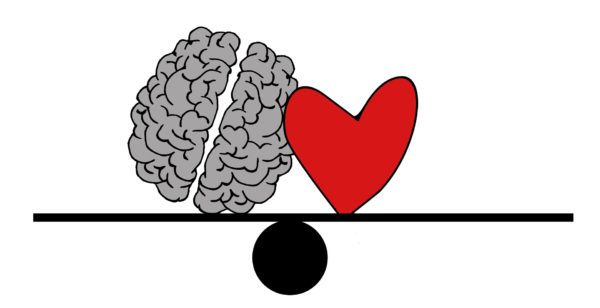Despite the growing pushback against the term “learning loss,” it does not seem to be going away, and that is a problem. We have mandated diagnostic testing to make sure that we are addressing learning loss, meanwhile losing the time where we would be learning in our classrooms to excessive testing. Ironic? Yes, it is.
This obsession at the administrative level seems insane. I mean, no one is arguing that the last two school years were normal. Students lost time in the classroom, and we have not regained a so-called “normal” state in education since the pandemic struck. True. However, “learning loss” ignores two basic truths:
Truth #1: Our kids did not stop learning just because they were not in school. They learned a lot from these crazy times, i.e. how to navigate online learning, how to communicate digitally, how to avoid controversial topics with adults on social media, how to live through a pandemic… So many things.
Truth #2: We have ALWAYS met kids wherever they are academically. Some are at grade level, some beyond and some below. Always. They will still reach their potential. No need to panic. Honest.
Learning has happened, is happening, and will happen. But we HAVE lost many, many other things in the last year and a half- important, invaluable things: laughter, music, art, play, companionship, smiles, theater, dance, hugs, cupcakes…JOY.

Joy loss. Why are we not more concerned with joy loss?
I first saw this term on Twitter. Dr. Gholdy Muhammad tweeted: “The issue with the rhetoric of “learning loss” presumes that students were only at a loss during a pandemic, yet children and uniquely Black children have been at an educational loss (and identity & joy loss) since the inception of this country being colonized.”
Of course, her tweet is equity-focused, and it is devastatingly true. When I read it, I realized two things. First, there are always students who are marginalized, all the more reason to reform our practice. And, the second new learning: identity and joy are essential to success in school, for all children.
I am all in on this ideology. I believe that each child in my classroom needs to feel welcome, safe, acknowledged, valued, and happy. That is the only way that I can ensure that they will learn.
After stumbling on the idea of “joy loss,” I went Googling and found a blog on the ThinkLaw website. ThinkLaw is an organization founded by Colin Seale that creates curriculum to foster critical thinking skills. That was an interesting find on its own, but the blog had some great points. Check it out here.
One of many takeaways from this blog was the idea of a joy mandate. What if we cared so much about how our students felt at school that we mandated their joy? This is not to replace academics, but to enhance learning. What if every classroom was full of happy, engaged, and joyful children? Before you get too skeptical, consider this: Isn’t that just as achievable as every child meeting standard on a state assessment? Therefore, is it not a goal worth pursuing?
If you are unconvinced, if you feel like we need to seriously drill those skills and teach for those tests, think about educators and their joy loss, too. These are tough times for all of us. How will doubling down on testing and measuring learning create better school environments?
Stephen Merrill’s blog on Edutopia, “Too Much Focus on Learning Loss Will Be a Historic Mistake,” speaks so well to the problem. We actually know- according to research- what works best for kids, and we have the opportunity to reinvent public education while it is in this relatively broken state. Why aren’t we reimagining how to create a better way? Read the article here for an in depth discussion of the topic.
The “better way” is a more joyful way, full of student choice, student voice, and student passion. This is evident in my own practice. I teach three grade-levels of English and a drama class. Even with my evolving mindset for a more joyful classroom, I often get stuck in that old rut, teaching the same English lessons as I did years ago. I don’t always respond to the apathy and lack of engagement I am seeing these days as quickly as I should. I am trying to loosen up and let go of the things that don’t matter, but, in a core class, with mandated diagnostics hanging over your head, you tend to clamp down from time to time.
On the other hand, my drama class is a vibrant and playful space. We are creating art on a daily basis and learning and practicing a myriad of skills. One of my new drama students told me the other day that he learns the most in drama. He values the skills he is learning, and he is having a blast at the same time. It brought me back to my thoughts on joy loss. What if my English classes felt like my drama class? What if they were having a blast learning?
Imagine this mandate: Foster joy in your classroom. I know some educators are going to be uncomfortable if we place yet another expectation on them. I also know that it is harder than it sounds. However, wouldn’t some PD and admin support for mandated joy be nice?
We can all choose to suffer under the traditional mandates, or maybe we can ask for a new way, a better way, a joyful way to help our students learn.

Hooray, hooray, hooray!
As an elementary teacher, I’ve always had two goals for my kids: that they learn as much as they possibly can. And that they have fun doing it.
(Often times, the more fun they are having, the more they are learning. Just saying.)